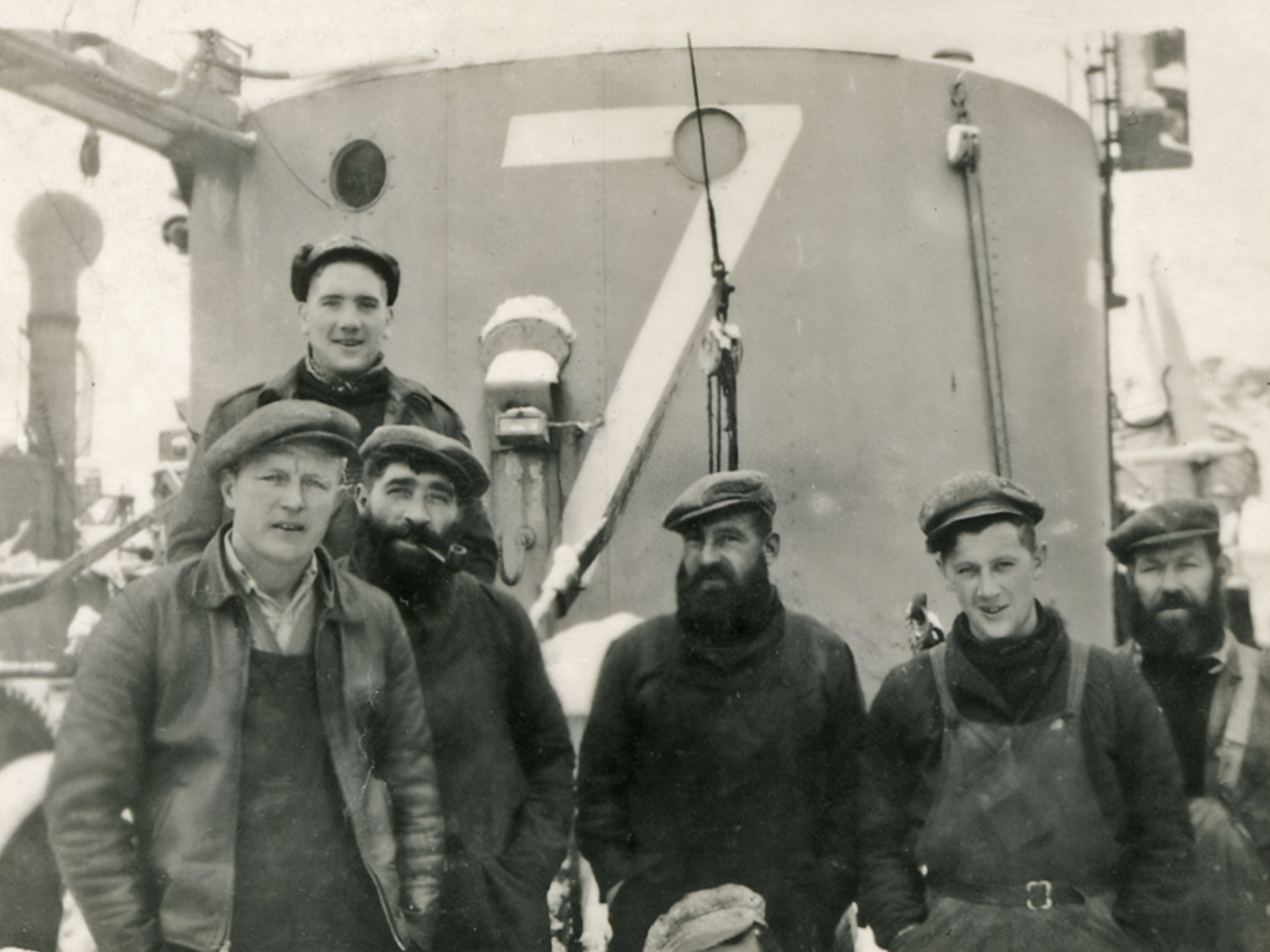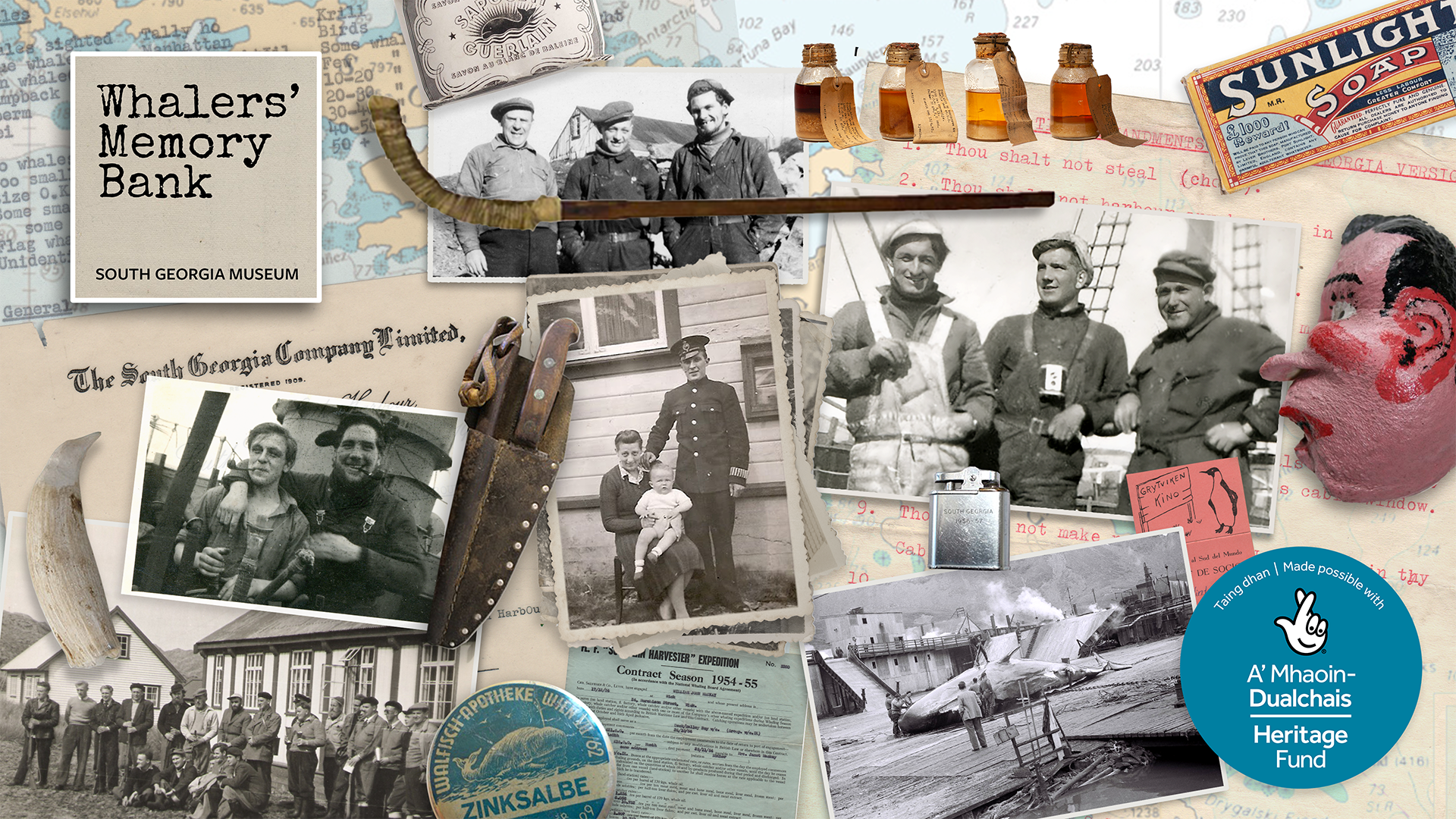A new project has been launched to capture the memories of Scottish whaling communities.
Over the next two years, the South Georgia Heritage Trust and the South Georgia Museum, will be working alongside former whaling communities to create The Whalers’ Memory Bank.
The Memory Bank will create a living, growing digital time capsule where veterans of the whaling industry can come together to share their stories.
The story of modern whaling in the Southern Hemisphere is a controversial one with British companies playing a key role in the industry.
These companies had a largely Scottish workforce and attracted many working-class men with the promise of adventure and competitive wages.
The whaling industry supplied oil that was used worldwide in foodstuffs and cosmetics with the oil and by-products from one whale fetching £2,500.

Maintenance crew aboard a whale catcher ship © South Georgia Museum
Now, only a dwindling number of men survive that have first-hand memories of this industry, an integral part of Scottish social history.
They are the last generation to be able to share their stories, knowledge and personal collections before they are lost forever.
Kicking off in July 2023, the project team will work alongside former whaling communities to capture memories that will help create The Whalers’ Memory Bank.
At the heart of this will be a series of community events to gather stories and help shape the Memory Bank that those communities want to see and will value.
It will also make the connection between why whaling happened, where it happened, and where most of the whalers came from in Scotland.
Jayne Pierce, project director and curator at the South Georgia Museum said: ‘Our aim is to create a digital portal that captures memories with photographs, oral histories, film and sounds, alongside a Virtual Reality tour of the whaling station on South Georgia.
‘This work will be done using the existing collections held by the South Georgia Museum and will also link into several Scottish museums that are partners in this project.
‘It is really going to be a joint effort, bringing together the former whalers and their communities to hear their stories and let them help shape the Memory Bank they really want to see.
‘We know from the contact we already have with the former whaling communities that families are eager to share their personal collections – artefacts and photographs stored in attics, cupboards and drawers – each with a story to tell.
‘We really hope the project will connect communities across local, national and international boundaries and dispel some of the myths around whaling.
‘It will create a richer experience than a simple online database – dynamic rather than static – uplifting and celebratory.’

Gibbie Fraser, chairman of the Shetland ex-Whalers Association (SeA) knows they have struggled to access archive material which can be restricted by charges and copyright.
He said: ‘The idea that the South Georgia Museum has about a shared archive to preserve what we can together is exactly what we were trying to do and welcome it with open arms.’
Anyone interested in finding out more or getting involved with the project should email memorybank@sght.org
Read more news and reviews on Scottish Field’s culture pages.
Plus, don’t miss the June issue of Scottish Field magazine.
TAGS

